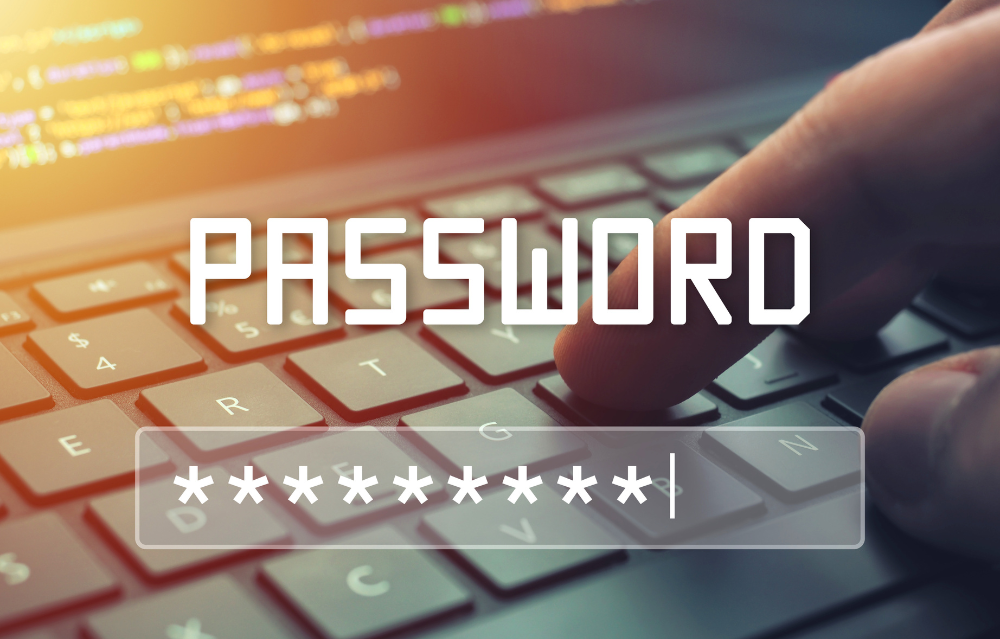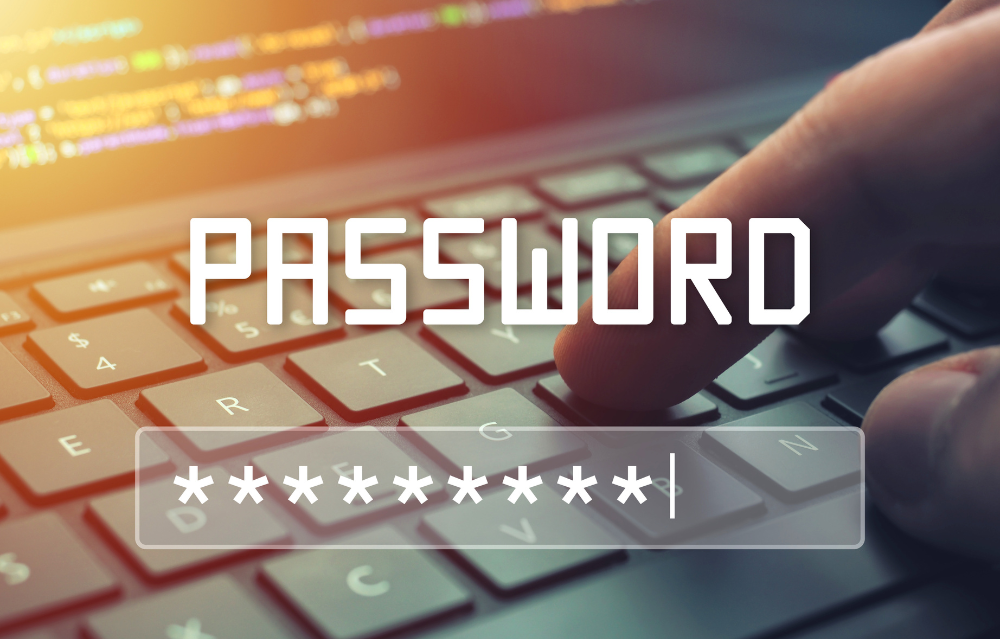Unlocking Identity with the Power of the Passkey
by Jason Holloway on Feb 19, 2024

A major shift in identity access and management is underway, and it goes by the banner of the passkey. This innovative authentication process is relatively new and a major leap forward in cyber security. It directly addresses the challenges faced by business leaders, offering a more secure and user-friendly solution than traditional password-based authentication.

Unfortunately, passwords can be guessed, stolen, or cracked, leaving systems open to unauthorised access by hackers and cybercriminals. Indeed, over 80% of data breaches are caused by compromised passwords (credentials).
Furthermore, the current approach to strengthening passwords with Two-Factor Authentication (2FA/MFA) is no silver bullet and can be at risk of interception.
To address these issues, advanced authentication solutions like Single-Sign-On (SSO) and device-based authentication have become the norm for modern enterprises. However, many small- and medium-sized businesses struggle to implement these measures due to lack of time, budget, or technical expertise.
Fortunately, passkey authentication offers solutions to these problems, significantly improving cyber security and business productivity. With passkeys, users authenticate with biometrics (e.g. facial or fingerprint recognition) and transact without entering a password.
Passkeys use cryptographic login credentials that are unique across every website, never leave the user’s device and are never stored on a server. This security model eliminates the risks of phishing, all forms of password theft and replay attacks.
They provide a secure and convenient way to replace traditional passwords for online identification and were conceived by Validity Sensors and PayPal in 2009, which led to the formation of the FIDO Alliance in 2012.
A Resilient Shield Against Unauthorised Access
Rather than relying on a single password, passkeys use a combination of factors to authenticate users, including something the user has (such as a physical device, key or smart card) and something the user knows (such as a password or PIN) or something the user is (such as biometric data like a fingerprint or facial recognition).
This multi-factor authentication provides a much higher level of security than traditional passwords and significantly reduces the risk of unauthorised access.
Challenge: Businesses face the ongoing challenge of protecting confidential information from cyber threats, which can result in reputational damage and financial loss.
Passkey Solution: Passkeys provide a robust defence mechanism, ensuring that even in the face of relentless cyber attacks, unauthorised access is thwarted, fortifying the organisation's resilience.
When you log in to a site that uses passkey technology, a push notification will be sent to your device’s browser or passkey management tool. You can then use your face, fingerprint, or PIN to authenticate. At this point a unique passkey is created and communicated to the website you're trying to access.
.png?width=462&height=295&name=Challenge%20(1).png)
Therefore, you can log in without ever transmitting your biometric data or other login credentials through a potentially insecure network, e.g. a public Wi-Fi connection.
Passkeys are highly secure. Each passkey will only work for the website for which they're created and are processed on your device instead of on a physical or cloud-based server, making it virtually impossible to hack.
This heightened security is a game changer for organisations delivering online services and safeguarding sensitive data against potential breaches. Bear in mind that one-third of online purchases are abandoned due to forgotten passwords. By enabling passkey support for authentication, businesses can increase their revenues and rest assured that their customers are protected against the most common cyber threats and ensure their customer’s sensitive credentials are kept secure.
Challenge: Businesses striving to achieve common compliance requirements like Cyber Essentials Plus and ISO27001 often struggle when trying to implement solutions that focus on authentication and authorization.
Passkey Solution: Passkeys provide a proactive defence by eliminating vulnerabilities to common cyber threats, ensuring businesses can demonstrate compliance with the most common compliance regulations, especially when applying for cyber insurance.
Streamlining User Experience for Enhanced Productivity
Remembering complex passwords and changing them frequently can slow down productivity and cause frustration among employees and bottlenecks for productivity. Passkeys make the user experience seamless by eliminating the need to remember complicated passwords. Employees can focus on their work without compromising their cyber resilience or system security.
Businesses are at risk when users share login credentials to access services they need. This also creates a challenge for administrators when managing services, especially with Shadow IT. Passkeys help reduce the risk of unauthorised access and data breaches, while providing better control over who can access what services.
Challenge: Businesses strive to maintain a secure environment without impeding the efficiency and productivity of their teams.
Passkey Solution: Passkeys strike the perfect balance, enhancing security while streamlining the user experience, ensuring that employees can work efficiently without the constraints of complex password requirements.
An ever-increasing number of websites and federation services support passkeys, including Google, Microsoft, and Apple to make things easier. This means you can securely sign in with a method and service you're already familiar with, without needing to remember more login details.
Moreover, passkeys are easy to manage and made securely transferable using a modern password management solution like 1Password, which generates and stores secure passkeys for the user. This means that you are not restricted to a single device for authentication (for example if you were using Apple Keychain, moving to an Android device would normally require setting up all your passkeys again). This also leads to an even more streamlined user experience and greater productivity.
How to Implement Passkeys
Solutions like 1Password (grab a demo here) are fantastic at supporting your implementation of passkeys.

Whilst being centrally administered, users can add an endless catalogue of passkeys, unique credentials, identities, payment cards, and even documents that stored locally and are accessible only to them.
Setting up a passkey is simple too. To use a passkey on a compatible app or website, you must enable it in the settings of the app or website you want to sign in to. Once enabled, you'll be prompted to use your biometric identification, PIN, or password to sign in, instead of entering a username and password.
Whilst we advocate passkeys here at Conosco, it is important to note that they alone are not enough to guarantee your cyber security. A strong technological infrastructure is needed to support them to be truly effective. Without a robust infrastructure, systems are vulnerable to malicious attacks and human error, leaving your sensitive corporate data exposed to cybercriminals. We don’t need to explain the consequences of such a breach or how devastating it could be.
At Conosco, we’ve spent two decades understanding the unique challenges of hundreds of businesses in building a cyber-resilient culture. Our tailored solutions go beyond the conventional, providing comprehensive support to address your specific needs and really getting the most from your current infrastructure, tools, and platforms:
- Passkey Integration Services: Seamlessly integrate passkeys into your security infrastructure, ensuring a smooth transition and enhanced protection.
- Security Awareness Training: Empower your team with the knowledge to recognise and thwart potential security threats, creating a vigilant and resilient workforce.
- Compliance and Regulatory Support: Navigate the complexities of regulations such as Cyber Essentials Plus, ISO27001, GDPR and PCI-DSS with our expert guidance, ensuring your organisation remains compliant and secure.
- Business Protection and Continuity: Assess and fortify your IT and cyber security strategy to identify vulnerabilities, weaknesses, and risks, providing sound recommendations for improvement.
Conosco, your strategic partner, is ready to empower your organisation with innovative solutions and unwavering support. Together, we can build a secure and resilient future for your business.
Unlock Identity Today with a Passkey Demo
FAQ
How do passkeys enhance security compared to traditional passwords and Two-Factor Authentication (2FA/MFA)?
Passkeys provide a robust defence mechanism by employing multi-factor authentication. Unlike traditional passwords that can be guessed or stolen, passkeys combine something the user has (like a physical device) and something the user knows (such as a PIN or password) or something the user is (biometric data). This multi-factor approach significantly reduces the risk of unauthorised access, addressing the vulnerabilities associated with traditional authentication methods. Passkeys also eliminate the need for transmitting sensitive biometric data or login credentials over potentially insecure networks, enhancing overall security.
Can passkeys be used securely across different devices, and how is the transferability managed without compromising security?
Passkeys offer secure cross-device functionality and easy transferability. Modern password management solutions like 1Password enable users to manage and transfer passkeys securely across various devices. Unlike traditional passwords tied to a single device, passkeys are not restricted, allowing users to authenticate seamlessly on different platforms. This flexibility enhances user experience and productivity and ensures that passkeys remain a secure authentication method even when transitioning between devices.
What steps should a business take to implement passkeys, and how can they ensure a seamless integration into their existing security infrastructure?
Implementing passkeys involves a few straightforward steps. First, businesses can explore solutions like 1Password, which supports passkey integration. Enabling passkeys within compatible apps or websites requires adjusting settings and prompting users to use biometric identification, PIN, or password for authentication. To ensure seamless integration into existing security infrastructure, businesses should consider passkey integration services provided by cybersecurity experts like Conosco. This ensures a smooth transition, enhanced protection, and comprehensive support tailored to the organisation's specific needs.
You May Also Like
These Related Stories

Passkeys in the real world
Passwords represent one of the weakest forms of security that we continue to rely on. They are easy to forget, easy to s …

Why We Should All Take Information Security More Seriously
Earlier this month, Conosco took an unprecedented step in advising our client base that, unless they heeded our advice o …

The Password Paradox: Navigating the Identity Crisis in Cybersecurity
What makes a perfect password? A unique set of characters, and only used only once? Does it have 36 characters? How abou …

